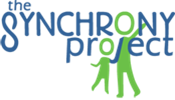Children in Foster Care / The SYNCHRONY Project

Rotation Director: Mini Tandon, DO
Other Faculty: Natchanan Charatcharungkiat, MD
Number of Fellows per Rotation: One-two
Length of Rotation: 12 months, one afternoon per week
Time of Rotation: First and second year of training
Goal
To familiarize fellows with the comprehensive evaluation of the unmet mental health needs of infant/preschool children in foster care.
Objectives
To develop competence in the following areas:
- Assessment of child functioning in the context of the child, parent, and the parent-child relationship
- Differentiation of normative/at-risk/disordered exams in infants, toddlers, and preschoolers
- Mental status examinations of infants/preschoolers
- Detailed early developmental histories
- Dyadic/relational approach to evaluation and care
- Clinical observations with a focus on aspects of parent-child relationship parameters
- Diagnostic formulation of early onset emotional and behavioral problems
- Careful weighing of risks and benefits of psychopharmacological interventions in the very young patient
- Formulation of comprehensive recommendations for mental health intervention and support of the child, caregiver, and parent-of-origin as well as characterization of parameters of viable reunification
- Exposure to a collaborative process with the St. Louis County Family Court and the Missouri Department of Social Services
The fellow will gain medical knowledge through working in a multidisciplinary clinical team.
- Review of the degree to which a young foster child may be at risk of new neglect, abuse, and/or maltreatment should a parent-child reunification occur
- Review of effective treatment strategies including psychopharmacological and psychotherapeutic approaches and strengths and limitations of approaches (combined or not combined with one another)
- Review of formulation of reports to non-clinical settings (Children’s Division, Family Court)
- Attendance (not mandatory) at the monthly Trauma Case Conference to discuss complex cases
The fellow will effectively communicate with patients, their families, foster parents, members of the multidisciplinary treatment team, and representatives of social services and the courts.
- Family interviews for the evaluation of infant/preschool-age children
- Developmentally appropriate interviews of very young children
- Conference calls with members of the Children’s Division and Family Court
The fellow will develop competence in continuous learning and improvement through practice and related activities in the clinic setting including close supervision by an internationally known expert in infant/preschool psychiatry who leads a large interdisciplinary team.
- Review of evidence-based literature
- Observation of a role model who contributes significantly to the evidence-based literature
- Active case-based learning in the clinic
- Opportunities to evaluate a patient in tandem with another mental health professional (social workers, counselors, psychologists)
The fellow will demonstrate sensitivity and compassion to children, adolescents, and their families/caretakers affected by psychopathology and will continue to develop relationships with other professionals or professionals in training including supervisors, colleagues, students, and allied professionals. In the clinic, major aspects of professional development will include:
- Developing intra-professionally by managing their own emotional reactions to youth and families seen in the clinic
- Responsibility for patient care as demonstrated by timely response or communication with families, attending(s), and other health professionals
- Arranging for coverage during absences including illness or vacation
- Acknowledgment and remediation of errors
- Intra-professionalism; the ability to understand and remedy factors that interfere with one’s proper professional conduct
- Respect for patients, colleagues, supervisors, supervisees, and staff regardless of background
- Review of professional conduct of colleagues, if appropriate
- Leadership role increases with training level improvement in problem-solving, providing resources, advice to others, and becoming a role model)
- Development of outpatient care skills including time management, clinic scheduling management, and communication with referral sources
- Familiarity with outpatient billing procedures
- Understanding of the global system of care and where clinic care fits in it including appreciation of the need to refer to other systems of care vs. longitudinal monitoring of at-risk youth if more adequate for patient care
- Utilization of appropriate consultation and referral
- Communication with referring providers and education of other providers within the system of care
Measurement of Objectives
- Direct clinical observations (use of one-way mirrors)
- Standard program evaluations
- Medical records review by faculty
- Clinical skills examinations (focusing on the use of interactive play assessment)
Description of Rotation
This is a second-year rotation through a one-of-a-kind clinic specializing in the evaluation of the unmet mental health needs of children in foster care. The fellow focuses on the evaluation and follow-up of the mental health and emotional development of very young children as well as assessing risk factors related to the occurrence of abuse and neglect. The program’s mental health services focus primarily on helping children from infancy through the preschool period (up to age 6).
Children and families are referred to The SYNCHRONY Project by the Family Court of St. Louis County or the Missouri Department of Social Services for two primary reasons:
- Young children in or at risk of placement in foster care who are suspected of having behavioral or developmental problems that are not fully addressed by the resources of clinical care to which they have access.
- Young children in foster care are likely to return to their parents of origin, but questions about the array of psychosocial supports necessary to ensure a successful reunification could be addressed by comprehensive child psychiatric consultation.
Initial evaluations consist of part A and part B: 2-hour assessments on consecutive weeks, followed by part C: 30-60 minute teleconference on the third week with the Family Court and MODSS representatives. Clinical Care Coordinators for the SYNCHRONY project are present for each evaluation and help coordinate interdisciplinary communication and implementation of treatment recommendations in consult with the lead clinician during and after the evaluation process. The SYNCHRONY Project will follow up with most patients every three months for long-term monitoring.